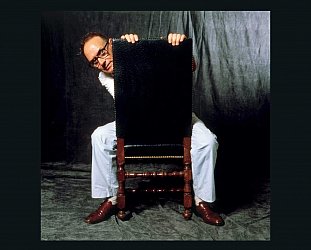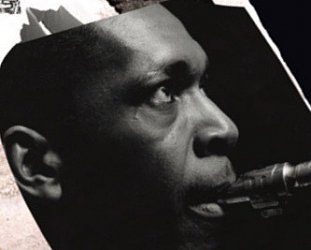Graham Reid | | 1 min read
Sun Kil Moon: Little Rascals

When my oldest son in London recently told me that he was going to see Sun Kil Moon (aka Mark Kozelek) in concert I said something to the effect, that'll be cheerful, a bundle of laughs.
That glib comment was driven by having endured his album Benji which I conceded in my review might actually be a classic. I just found it intolerably self-indulgent . . . and worse, his monochrome ruminations not that interesting,
Anyway a week or so later my son told me the show had been great and Kozelek was kinda funny, joking that critics wanted Benji II but he couldn't lose his virginity twice or have the same person die again . . .
Fair enough.
But I'm glad this album isn't Benji II and, despite trepidation when approaching it, have found it weirdly and inexplicably more interesting than its predecessor. Which is odd because it charts similar waters. But the tempo shifts, the interpolation of spoken word passages and the shapeshifting stories being told -- which flick between the anecdotal, metaphoric and existential -- make for compelling . . . listening?
Well, I listen to a lot of spoken word/poetry and such, so am probably more of that frame of mind than most.
But to complain here about the wilfully limited musical palette (guitar, Steve Shelley on drums, some keyboards and bass in rare places) is akin to saying Dylan's early acoustic work was dreary and musically narrow.
You don't come here for "the music" as such (although there are some lovely quiet passages on acoustic) but rather "the words", because this is very much a Listening Experience in the same way as picking up a book is a Reading Experience.
Here SKM tells his stories in his Steve Earle/Springsteen/Bukowski speak-sing rumble with that attention to small (and admittedly often insignificant) detail which reminds you of poet William Carlos William's cryptic line: "No ideas but in things".
And how Ezra Pound used objects to stand for so much more.
Kozelek is not a poet however -- and certainly not in the realm of Williams or Pound -- but his narratives place the listener in very specific locations (although he's just as likely to take you somewhere else in a great leap).
So this is far from easy listening -- and the average length of these pieces is nine minutes -- but there's a strange beauty (working class, a celebration or at least acknowldgement of the ordinary, it's about his life and music and friends) at work.
That said, I tried to listen to Benji again just to see how wrong I'd read it after this somewhat transforming experience.
But, nahhh.
This one, however . . .





post a comment